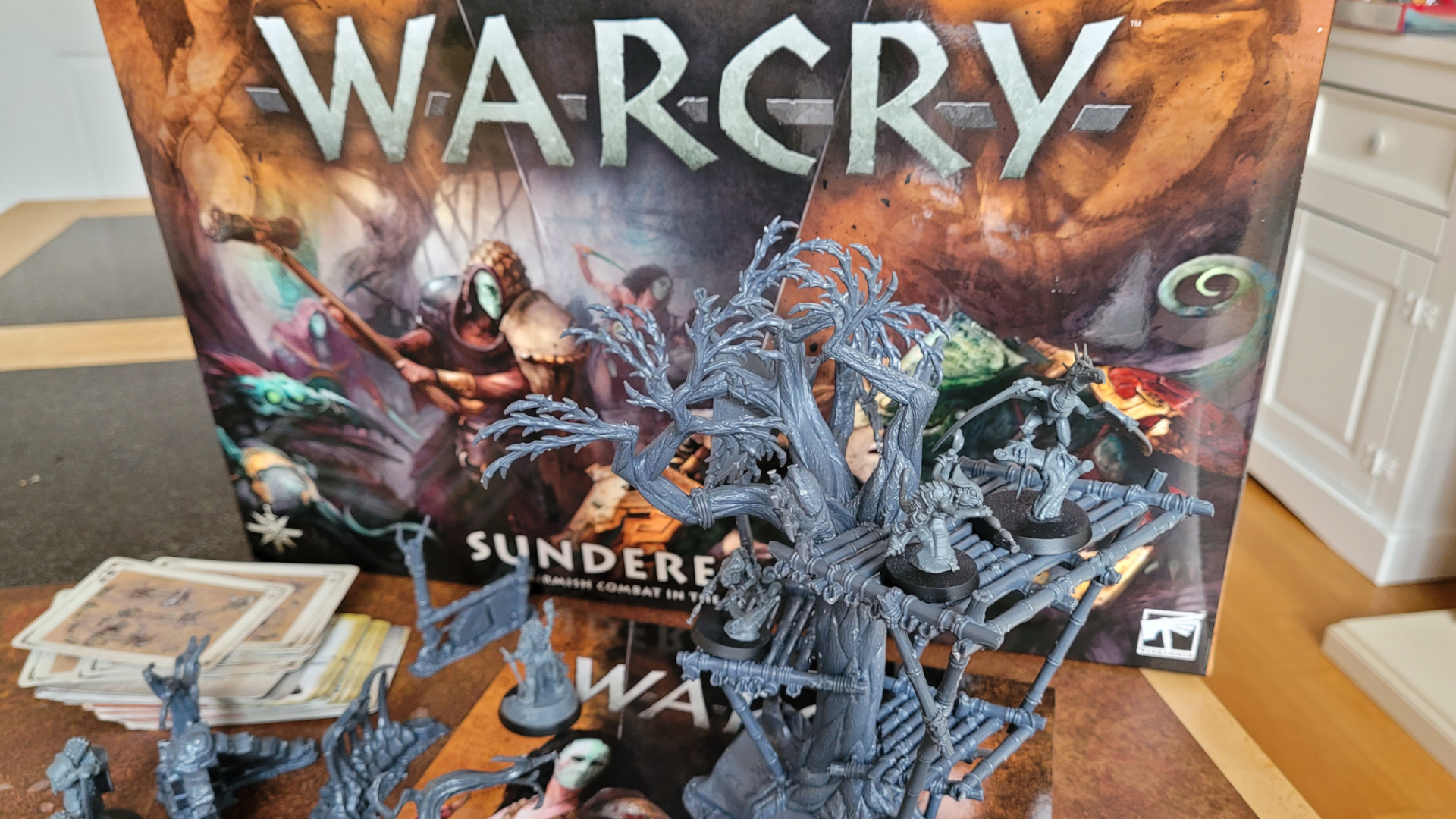GamesRadar+ Verdict
Because it doesn't include the core rules and will soon be available piecemeal at retail, Warcry: Sundered Fate is an odd proposition that doesn't entirely suit newcomers or veterans. However, the warbands within are excellent and the featured campaigns are great as well.
Pros
- +
Warcry is a great system, fast playing with a fine balance of tactics and strategy
- +
Two really novel, fun warbands to add to your Warcry collection
- +
Includes a fun campaign that really adds to the narrative of individual battles
Cons
- -
Hunters of Huanchi warband may be hard for inexperienced players to handle
- -
Not the best value package: better to wait for the separate warbands at retail
Why you can trust GamesRadar+
Warcry: Sundered Fate is the latest boxset for the smaller, younger sibling of Games Workshop’s fantasy behemoth Age of Sigmar. Rather than huge armies of figures clashing on the tabletop, it gives each player a warband of a dozen or so warriors, who duke it out on a smaller area crowded with scenery.
Although it’s quite different in mechanical terms from its better-known stablemate, it’s every bit as good, if not better - and it's got a faster playtime, lower overhead, and strong narrative element. That makes Warcry: Sundered Fate (which moves the focus away from Chaos cultists fighting in dungeons as per Warcry: Red Harvest to Chaos cultists fighting in jungles) well worth a look.
What is it, and how does it work?
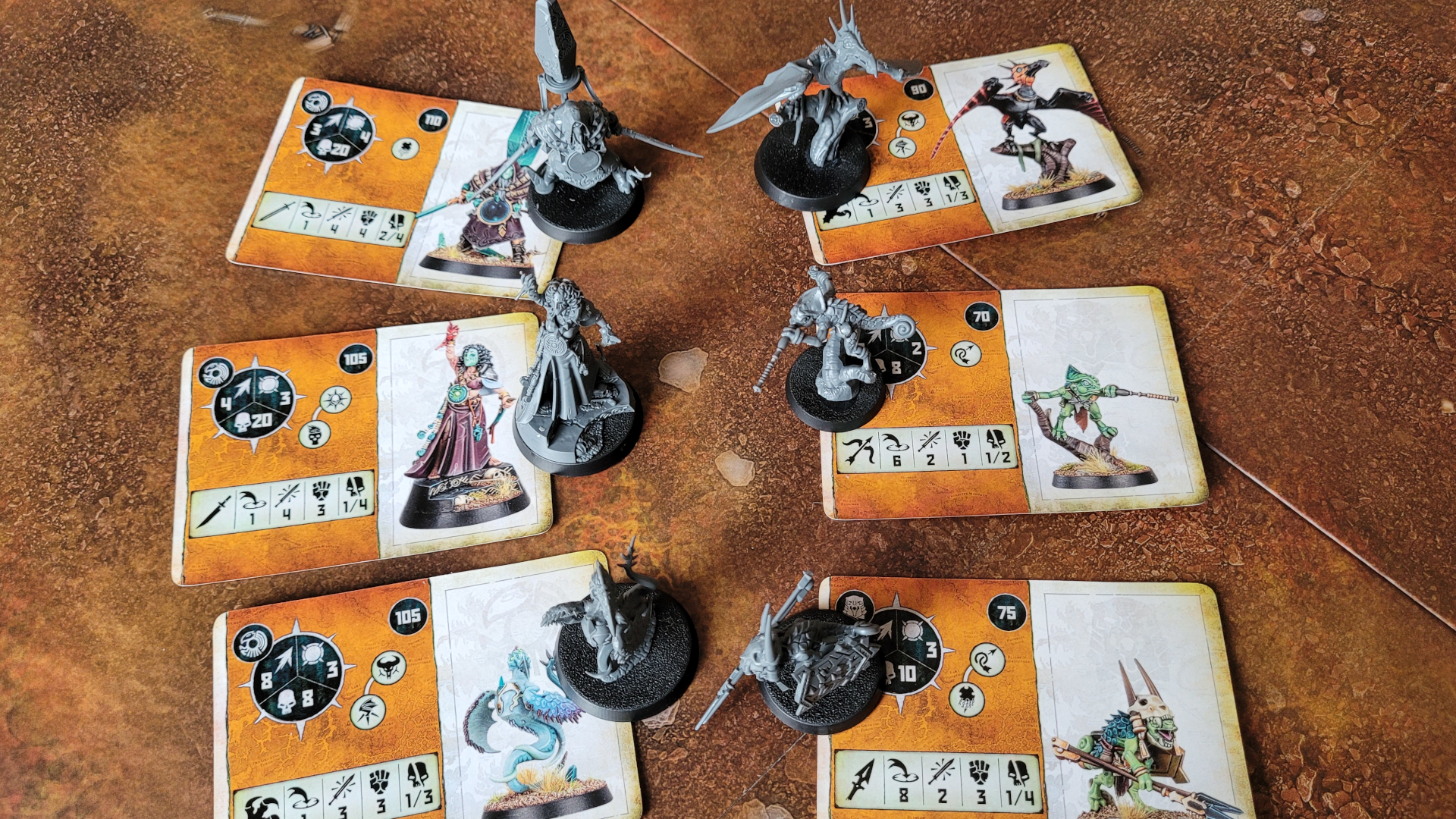
Sundered Fate is the follow-up box to Warcry's second edition with new scenery, a new campaign, and two new warbands, one of which doesn’t represent chaos but rather the lizard-like Seraphon. It’s a curious set of contents in one respect because the game is potentially self-contained… except it’s lacking a core rulebook. Get one of those and you’re good to go with the contents provided.
First, you’ll have to assemble the multiple sprues of plastic provided. The Chaos warband, The Jade Obelisk, not only glue together easily but look fantastic. Rather than the skulls and spikes that typify their faction, these are chunky, cloaked fighters with faces hidden behind implacable stone masks. Their opponents, the Hunters of Huanchi, also look fantastic with their mix of Chameleon Skinks and flying Terrawings. However, they’re much harder to assemble, with easily broken blowpipes and ankle joints. The same goes for the flesh-eating Gnarloak trees that dominate the scenery (for those keeping score, this is the same location as the one seen in Warhammer Underworlds: Gnarlwood), which are robust but fiddly to assemble.
Because Warcry is quick-playing at around an hour per game, it’s also possible to chain scenarios into a campaign
Once that's out of the way, you can get down to business. While Warcry still has the buckets of dice familiar to Age of Sigmar players (along with concepts such as comparing strength against toughness to determine if an attack hits), it is different in many ways. To start with, movement is more three-dimensional than you might be used to - models commonly climb all over the scenery looking for height advantage and cover. In addition, unactivated models can use actions in the enemy's turn, known as reactions, to counter-attack or take cover.
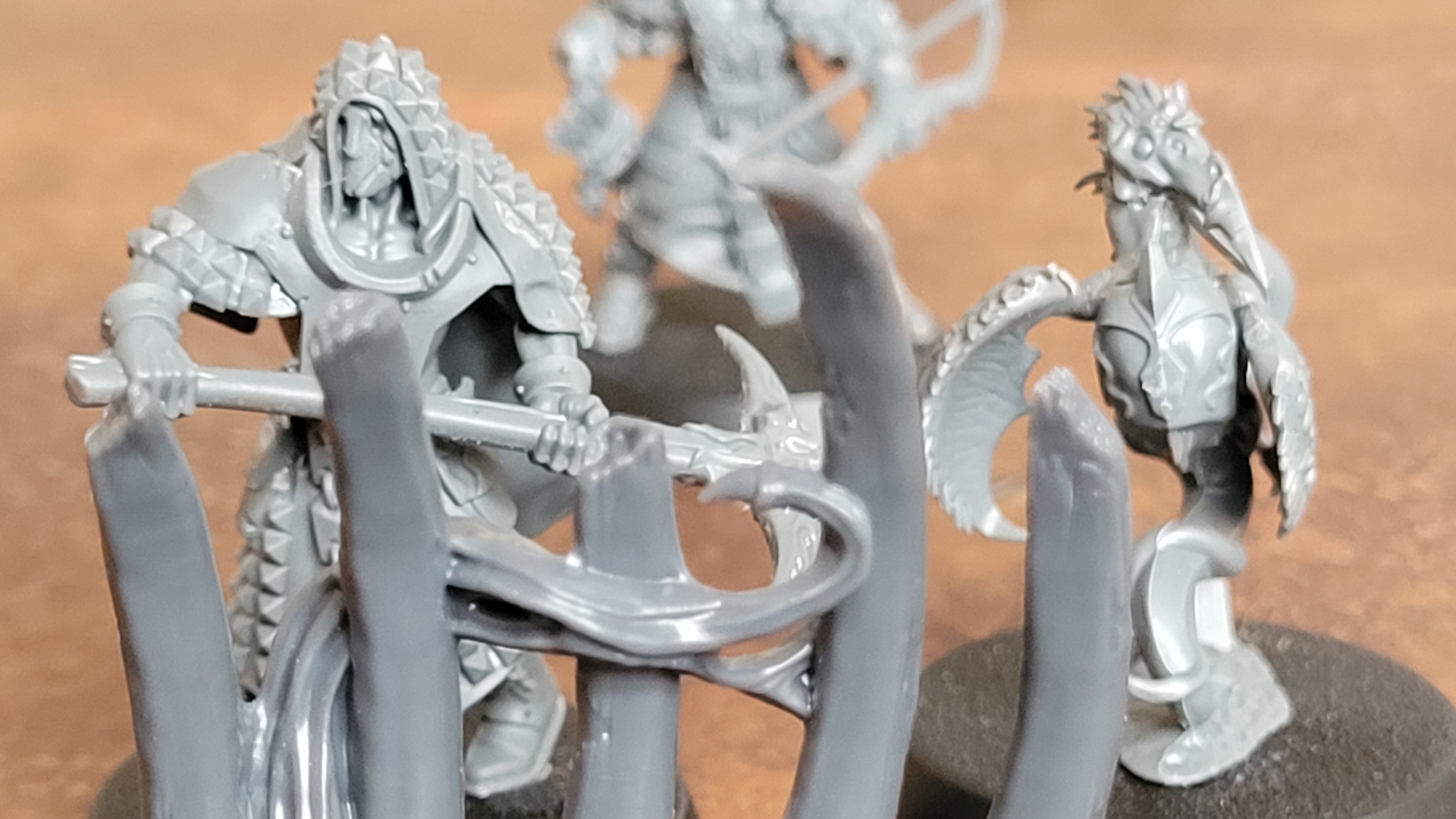
Sundered Fate also borrows a fun concept from another Games Workshop line, Warhammer Quest. The first player each turn is determined by an initiative roll - e.g. six dice which are grouped into like results. The player with the most singles goes first. But pairs, triplets, or fours of the same number can be spent to activate powerful abilities specific to your faction during your turns.
The differences between Warcry and Age of Sigmar aren't just mechanical, either. Sundered Fate features a dynamic scenario system whereby card draws determine the scenery layout and the starting positions of troops together with the victory conditions and a 'twist'. Because Warcry is quick-playing at around an hour per game, it’s also possible to chain scenarios into a campaign where your fighters gain experience and renown. These are flavoursome affairs with quests and base camps between battles.
Weekly digests, tales from the communities you love, and more
The book features two such narrative campaign arcs, one if you want to use Sundered Fate as a board game for 2 players and another for 4 - 6 players divided into teams.
Is it any good?
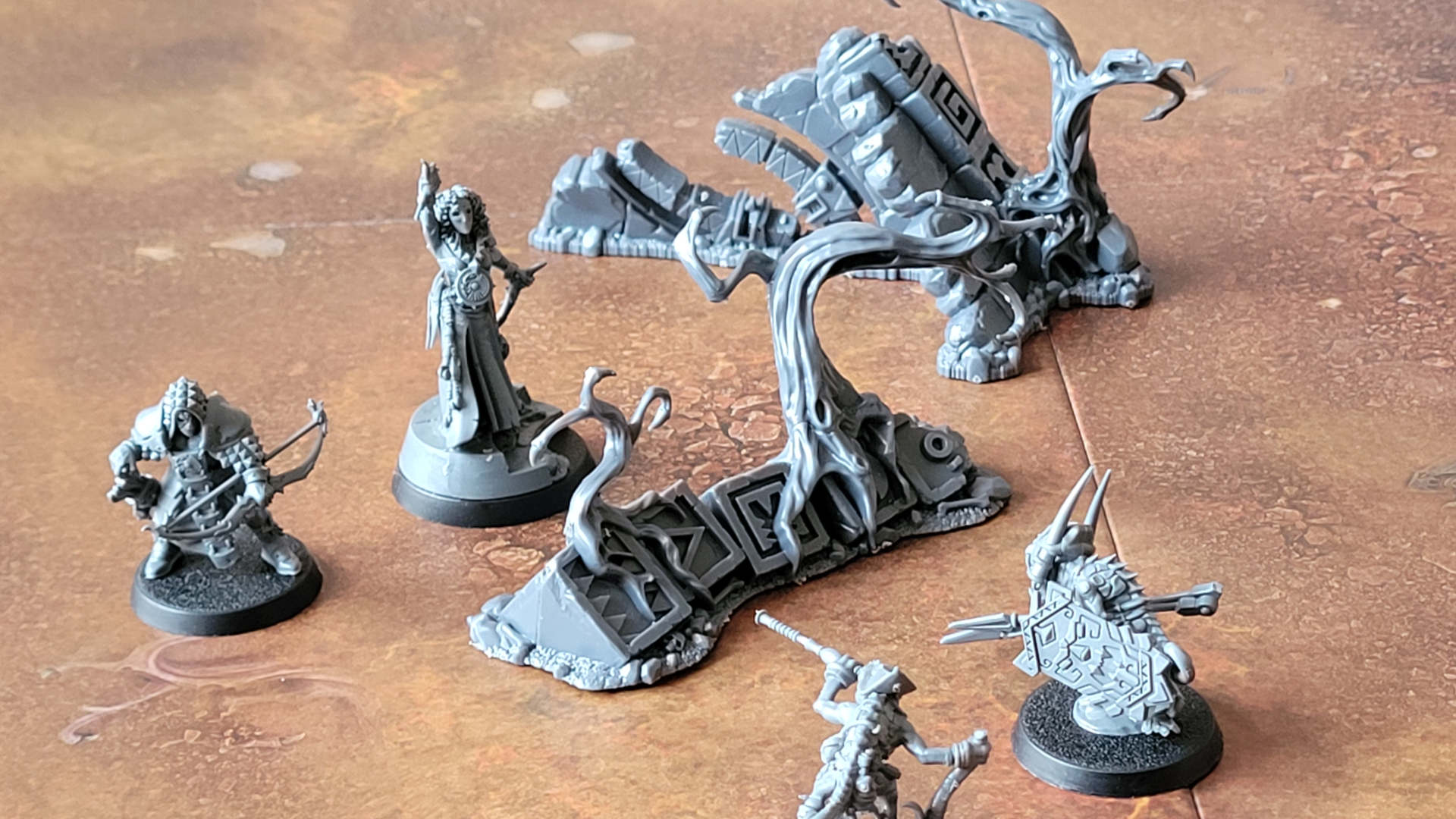
Warcry as a whole is a hidden gem in Games Workshop’s lineup of more famous fare. The focus on individual models means each battle generates a detailed and engaging narrative as it unfolds. Together with the lower rules overhead, it's also easier to get into. That, in turn, makes it more fun to roll with the punches when the dice don’t go your way.
But at the same time, there’s a surprising amount of strategy. Scenery is very important in the game, and it rewards good maneuvers almost as much as good combat rolls.
If there was ever a box to put that to the test, it’s Sundered Fate. The Jade Obelisk are slow, lumbering, implacable warriors that can soak up punishment with a special reaction ability that lets them reduce damage. The Hunters of Huanchi, meanwhile, are weak and fragile, but make up for it with their reaction ability to break off combat without penalty and use doubles to make vertical moves for free, meaning they’re all over the scenery in no time. It’s a direct competition between movement and punishment.
While there’s a lot of fun to be had with Sundered Fate, it’s an odd box as a whole proposition
And it turns out that while this is a fascinating dichotomy, it is harder to use the Hunters of Huanchi than it is their Chaos opponents. There hasn’t been such a maneuver-focussed warband in the game and they’re fun and fresh to play, as well as infuriating to play against. But they're so squishy, and their overall damage output is so low, that you can be left at the mercy of a bad set of victory or twist draws. However, experienced players will find them a novel and entertaining challenge.
Their opponents look more straightforward at first glance and are easier to handle, but doing so demonstrates they’ve got some surprising wrinkles of their own. Unusually, they have no stand-out models. In fact, their leader - the priestess - is very weak. Yet she, along with two other models, are key to using the faction's powerful special abilities. So playing them is very much about trying to screen unique models, using their powerful melee fighters and bow support to stand toe to toe with dangerous character models from other factions.
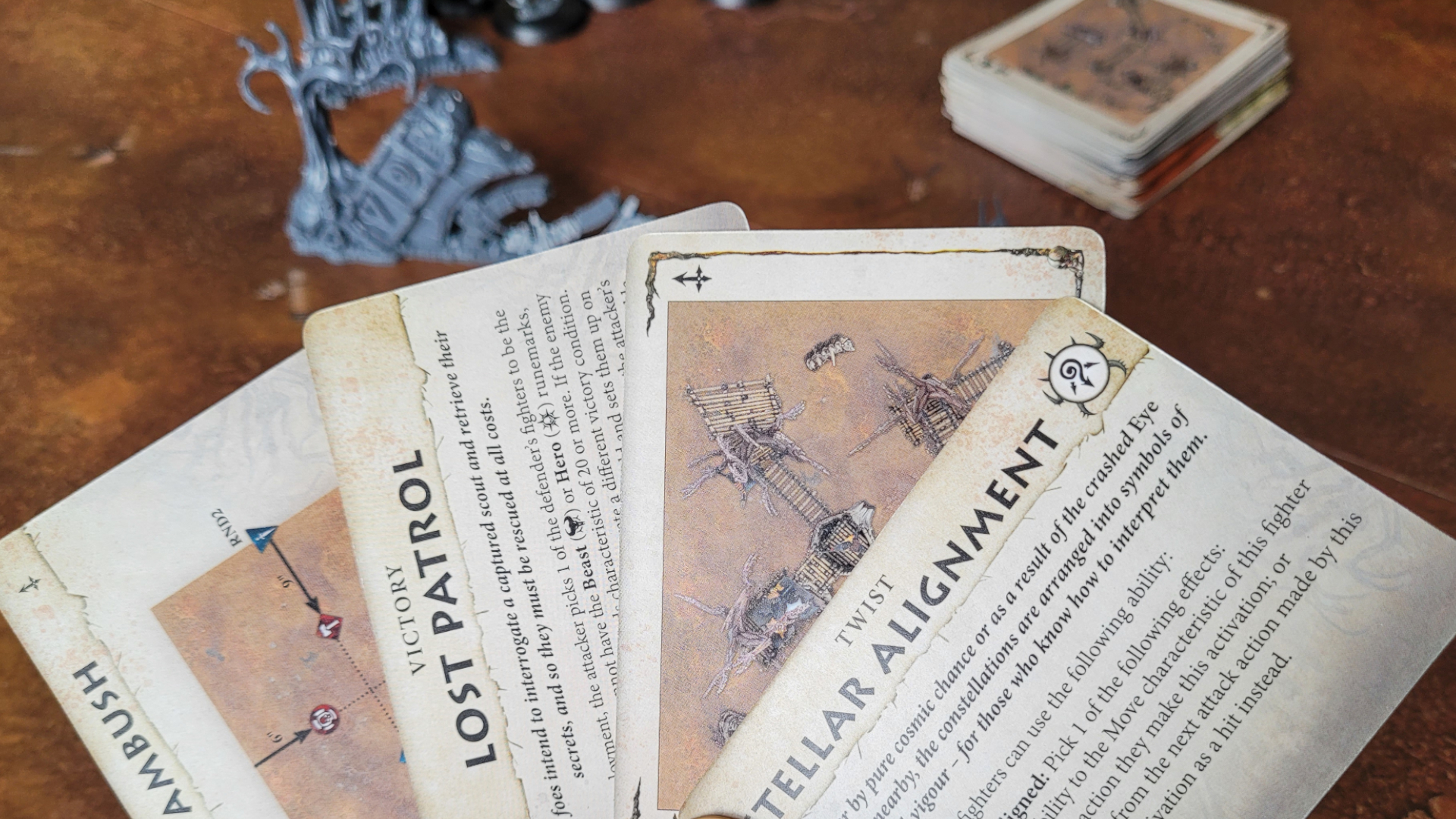
As for the included campaigns, they're good fun. The two-player one is particularly great because it gives players an extra resource to track called, oddly enough, the 'resource score'. It can be spent on extra wild dice or to bid for favorable twists, an interesting inclusion of an auction mechanic in a miniatures game. It’s not much, but it’s a fun extra on top of tracking quests, warrior renown, encampments, and all the other stuff that goes to give campaigns the extra narrative edge over the one already generated by individual models during battle.
Should you buy Warcry: Sundered Fate?
While there’s a lot of fun to be had with Sundered Fate, it’s an odd box as a whole proposition. Newer players will be better off with the second edition core set, Heart of Ghur, as it contains a rulebook and easier-to-handle warriors. Veterans, meanwhile, may balk at paying for a whole load of extra scenery and cards to set it up, when the best bits of the box - the warbands and campaign - will soon be available separately.
As such, the set is probably best left to competitionists or enthusiasts who can’t wait for those separate releases. Although given how much fun the warbands are, a degree of impatience is understandable.

Matt is a freelance writer specialising in board games and tabletop. With over a decade of reviews under his belt, he has racked up credits including IGN, Dicebreaker, T3, and The Guardian.
